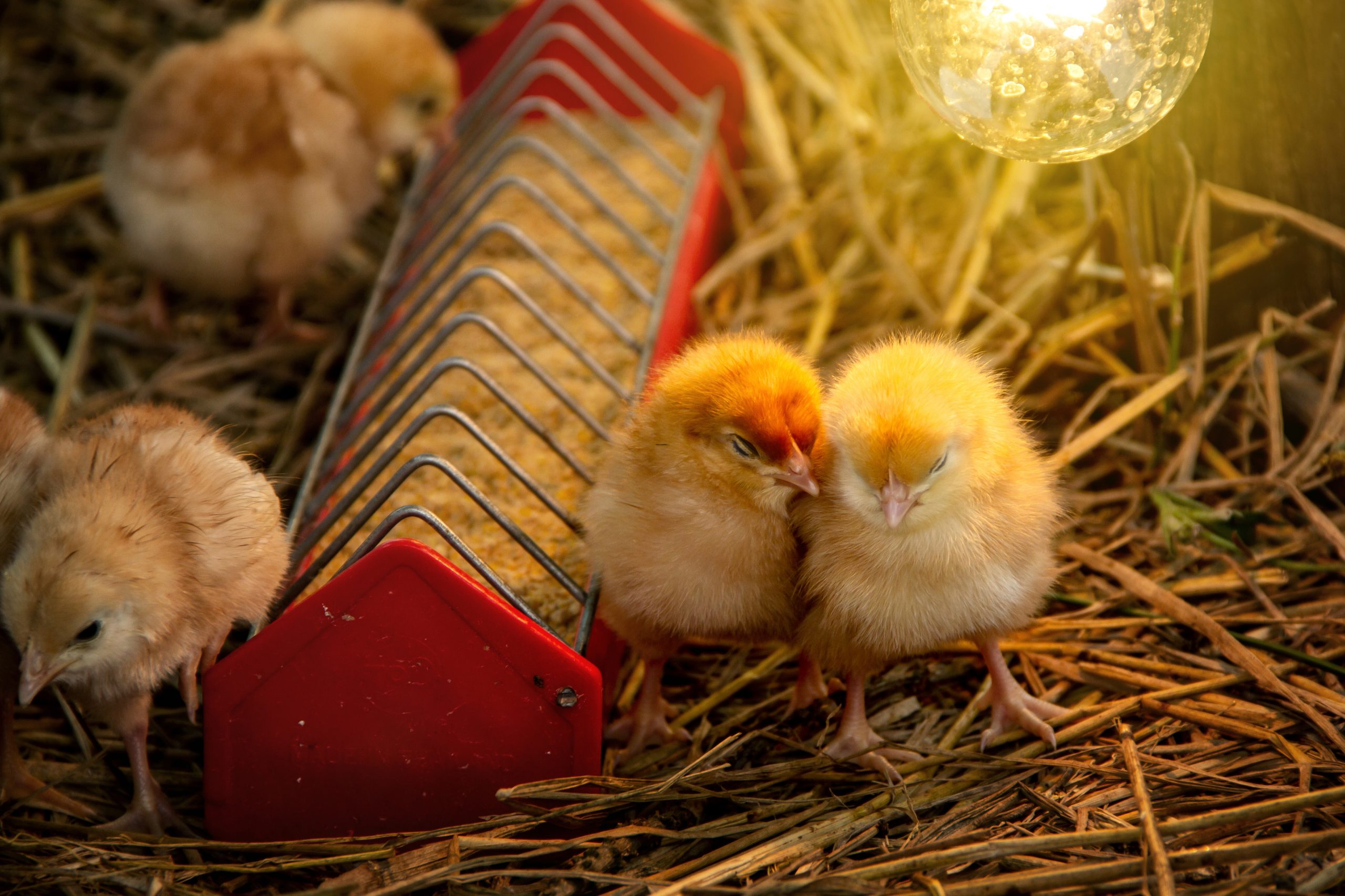Animal husbandry or livestock for agriculture. Chick eating food in the tray and two chicks that are sleeping Under the light bulb warmth on straw in the night.Which came first… the egg or the chicken? That’s what comes to mind when someone asks me what they need to do if they want to start raising chickens. And for the record, the answer is the egg. (Today’s domestic chickens are the result of breeding wild jungle fowl with other birds to create what would become the chicken. So, it seems to reason that someone at some point crossed two birds that resulted in an egg that would become the first chicken.)
But, where do you need to start when you decide that you want to raise chickens? Can you really have a small flock of chickens and fresh eggs for breakfast everyday?
You can, and getting started with chickens is easier than you may think. In fact, the chicken is often referred to as the ‘gateway’ animal. Chickens are so easy to raise that you may be tempted to start raising goats, pigs, or even your own cattle.
Make sure that you can have chickens.
This may sound silly, but if you’re living in a suburban or urban area, you may find that you can’t have chickens. Some towns and cities in the past have made owning livestock within city limits illegal. Luckily, many of these laws regarding chickens have been reversed. It’s always smart to ensure that chickens are ok where you live before you invest time and money into them. The same is true if you’re living in a community with a HOA.
If you’re living in the county, odds are that you can raise all sorts of livestock, including your chickens.
The basics of what you’ll need.
I always recommend that people jump into raising chickens if they are interested. Of course, there’s a learning curve any time that you get a new pet. Chickens are no different. It’s good to do your research, but you’ll learn the most about raising chickens by having chickens. Once you get the basic equipment, go ahead and get your chicks!

So what do you need to get started raising chickens?
The most important thing you’ll need for your chickens is a sturdy coop. This is the most crucial piece of equipment that your chickens will need, whether you decide to keep your chickens cooped up or free range them. A sturdy coop will keep chickens safe from predators, give them a place to lay their eggs and keep them warm and dry in bad or cold weather.
You’ll also need a good feeder and waterer for them. There are many options for feeders and waterers but there are only a couple of basic ones that you need. When you’re starting chicks, you’ll need a low lying feeder, like a snap-top style trough feeder. For older birds, you’ll want a feeder that is elevated off of the ground and holds more feed. A hanging feeder is ideal for older chickens.
Waterers that hold plenty of water are a must. Choose a waterer that is larger than you think you need. It’s always better to have more water than your birds need than not enough. For a flock of 4 hens, you’ll want a waterer holds at least 2 gallons. You can use small waterers for baby chicks.
Good nutrition is also key for healthy chickens. Choose a high-quality, balanced feed for chickens. Don’t give chickens scratch grains as their main diet. Always provide a small dish of grit and oyster shell. Chickens need grit to digest their food properly and oyster shell will help to provide the extra calcium needed to make egg shells.
There are a bunch of things that you may think you need to get started raising chickens, but their needs are simple. To get started you’ll need to give them a coop, food and water. The rest can wait.